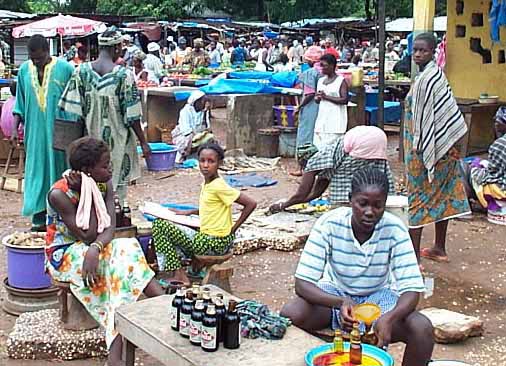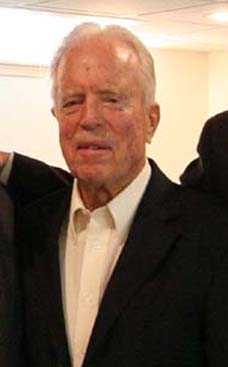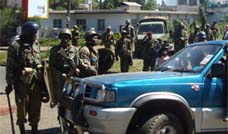
My assignment is at the junior high school, where I teach math classes. The kids are numerous, say 60-115 per class, but also enthusiastic and hardworking if they have time or light to study at night. You may be skeptical, but I genuinely feel that a kid who learns all about prime numbers and isosceles triangles will have a better chance at helping Burkina change those grim statistics. I want to give them confidence in their own intelligence and I want them to learn how to learn. It’s frustrating more often than not, but sometimes we make progress. Before coming here, I can remember feeling uncomfortable or even guilty at reading things like what I’ve just written: Why is life so hard for them, and so “easy” for me? I now think that’s an immature response: guilt is useless and silly. Despite our abundance of turkeys and washing machines, to live in America with a straight face takes real courage. The people of Burkina have their own story and their own problems which we cannot easily step in and “solve.”
Will Mitchell writes: Life in Burkina Faso gives meaning
Life in Burkina gives meaning
Patriot Bank
Will Mitchell
Peace Corps Volunteer
When I found out that the Peace Corps had assigned me to Burkina Faso, my first reaction was: What’s that?
Google quickly verified, and after living here for a year I can confirm that it is a real country!
According to the old French encyclopedia on my principal’s desk, Burkina (formerly the (Upper Volta) is “a poor country, enclaved in the heart of the Sahel, the domain of a mediocre subsistence agriculture, subject to frequent droughts and famines.”
This understates the problems: According to UNICEF, life expectancy is 48 years. Adult literacy is 22 percent.
The average woman has 6.5 children, and on average a fifth die before age 5. Average income is $400 a year, with a third of the population getting by on less than a dollar a day.
Salaried jobs in government, industry, and with NGOs are hard to get; many families rely on money sent by male relatives from Ivory Coast, Mali, or France.
In this malaria hotbed, hardly any children sleep under mosquito nets. Environmental catastrophes loom in all directions: desertification, deforestation, soil depletion.
2006 posting
Since last year I’ve been posted in Sidéradougou, a village of 12,000 in the country’s comparatively lush south, where I see not statistics but daily life in all its grimy detail.
My neighbors get by on an austere combination of grit, endurance, backbreaking labor, tenacity, good humor, and mutual support.
There is no electricity or running water or toilet paper.
Little girls get up at five o’clock and balance enormous basins of water on their heads.
Women cook the staples, corn and millet mush, in pots supported by rocks over wood fires, then wash the dishes and the family’s clothes, make the increasingly long trip to gather firewood, and look after the smallest children.
Men alternately work hard and sit around drinking tea: all agriculture is done by hand except for some of the plowing, where they can afford to use oxen. Some are incredibly skilled and inventive in repairing motorbikes, tape decks, cellphones (since the tower went up a year ago), and tools.
And they get by! Self-pity doesn’t help anyone!
There’s time for soccer games, practical jokes, marriages, prayer, and feast days.
On big holidays like the end of Ramadan or the end of the school year, there are a few clubs that run stereos and speakers from a generator, very important for youths to show off their dance moves.
Serious Muslims and serious Christians live side by side and joke with each other about being infidels. Four or five ethnic groups, each with its own language, co-exist without friction (except when the Peuhls’ cows get into the other groups’ fields).
The duty
My assignment is at the junior high school, where I teach math classes. The kids are numerous, say 60-115 per class, but also enthusiastic and hardworking if they have time or light to study at night.
You may be skeptical, but I genuinely feel that a kid who learns all about prime numbers and isosceles triangles will have a better chance at helping Burkina change those grim statistics.
I want to give them confidence in their own intelligence and I want them to learn how to learn. It’s frustrating more often than not, but sometimes we make progress.
Before coming here, I can remember feeling uncomfortable or even guilty at reading things like what I’ve just written: Why is life so hard for them, and so “easy” for me?
I now think that’s an immature response: guilt is useless and silly.
Despite our abundance of turkeys and washing machines, to live in America with a straight face takes real courage.
The people of Burkina have their own story and their own problems which we cannot easily step in and “solve.”
But we can put our own house in order, and that would make a big difference everywhere.
I’m thankful for a lot of things I always took for granted as a kid in Scandia.
I’ve had several conversations with students—some of my 9th graders are 20 years old—where I find myself explaining some simple fact of American life to their great astonishment and envy: washing machines, contraceptives, the Internet, strong and independent women, local government, seedless watermelons, a snowplow.
Baseball and the Electoral College are beyond my ability to explain, but I miss them too. (Is that strange?)
Most of all, I’m thankful for the things that can’t be bought, nor learned from a book, nor given away.
Mitchell's bio
A closer look at Will Mitchell, who is now serving as as Peace Corps volunteer in Africa.
•Age: 23.
•Hometown: Scandia.
•High school: Forest Lake High School, class of 2002.
•??College: St. Olaf College, Northfield, graduated in 2006, mathematics major.
•Entered the Peace Corps in July of 2006. First assignment was in the West Africa nation of Guinea. Reassigned to Burkina Faso, in July of 2006. He will remain in the Peace Corps until the fall of 2008.
•Interests: In high school, Will Mitchell ran track and cross country, was on the Nordic ski team, played french horn in the symphonic winds and was a Merit Scholar. He completed five years of French as a foreign language option in junior high and high school. French is the primary language of Burkina Faso, a former French protectorate.
•Why he joined the Peace Corps: The Peace Corps is an opportunity to offer a constructive form of service to the world while gaining a new world perspective.
•About Burkina Faso: Burkina Faso is in Western Africa, north of Ghana. Formerly Upper Volta, the country achieved independence from France in 1960. Repeated military coups during the 1970s and 1980s were followed by multiparty elections in the early 1990s. Current President Blaise Compaore came to power in a 1987 military coup and has won every election since then. Burkina Faso’s high population density and limited natural resources result in poor economic prospects for the majority of its citizens. Recent unrest in Cote d’Ivoire and northern Ghana has hindered the ability of several hundred thousand seasonal Burkinabe farm workers to find employment in neighboring countries. This tropical nation with a population of 14.3 million people is similar in size to the state of Colorado. Source: The World Fact Book.









